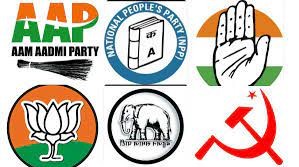
Political parties play a crucial role in democratic systems around the world. They serve as the primary vehicles for political participation, representation, and governance. In this response, we will provide you with an overview of political parties, their functions, and their significance in political systems.
Definition and Functions of Political Parties:
Political parties can be defined as organized groups of individuals who share common political beliefs, ideologies, and goals. These parties seek to influence public policy, contest elections, and govern through the acquisition of political power. Political parties perform several key functions:
1. Representation:Political parties act as a bridge between citizens and the government. They represent the interests and concerns of various segments of society, aggregating and articulating them through party platforms and policies.
2. Political Mobilization:Parties mobilize citizens by promoting political awareness and participation. They encourage individuals to engage in the political process, such as joining the party, campaigning for candidates, or voting in elections.
3.Policy Formulation:Parties develop policy platforms and agendas to address societal issues and challenges. They articulate their positions on various matters, ranging from economic policies to social reforms, which help voters make informed choices.
4. Candidate Recruitment and Selection:Parties identify and recruit potential candidates for political office. They screen individuals, assess their qualifications, and select suitable candidates to represent the party in elections.
5. Campaigning and Electioneering:Parties play a pivotal role in election campaigns. They formulate campaign strategies, organize rallies, run advertisements, and engage in debates to promote their candidates and win elections.
6.Legislative Function:Parties often form the majority or opposition in legislatures. In this capacity, they draft and pass legislation, scrutinize government actions, and hold the executive accountable.
7.Political Stability:Parties provide stability to political systems by offering continuity and predictability. They create a framework for political competition and facilitate peaceful transitions of power.
Types of Political Parties:
Political parties can vary in their ideologies, policy positions, and organizational structures. Here are some common types of parties:
1.Ideological Parties:These parties are based on specific ideologies, such as liberalism, conservatism, socialism, or environmentalism. They advocate for comprehensive policy changes aligned with their ideological principles.
2.Catch-All Parties:Catch-all parties strive to attract a broad range of voters by adopting moderate positions and accommodating diverse interests. They often prioritize pragmatism and electability over ideological purity.
3.Single-Issue Parties:Single-issue parties focus on a particular policy or cause, such as environmental protection, animal rights, or regional autonomy. They mobilize support by emphasizing their commitment to a specific agenda.
4.Nationalist Parties:Nationalist parties prioritize the interests and values of a particular nation or ethnic group. They advocate for policies aimed at protecting national identity, sovereignty, and cultural heritage.
5.Regional Parties:These parties represent the interests of specific regions or states within a country. They seek greater regional autonomy or address regional concerns and grievances.
6.Religious Parties:Religious parties are based on religious principles and seek to promote policies aligned with their religious beliefs. They often aim to influence social, moral, or ethical issues.










